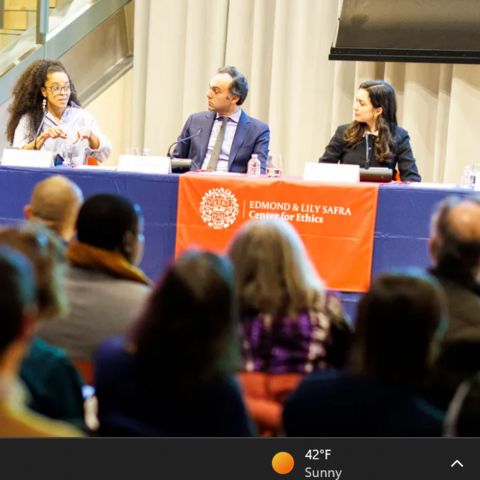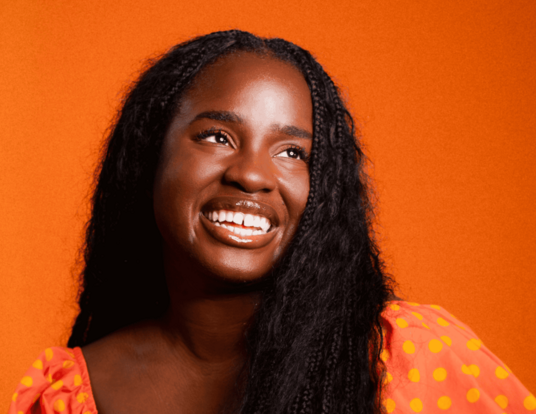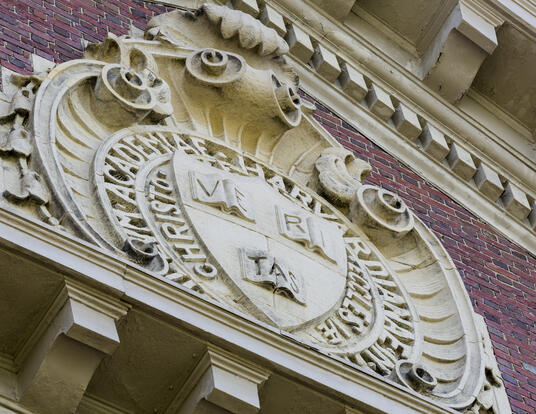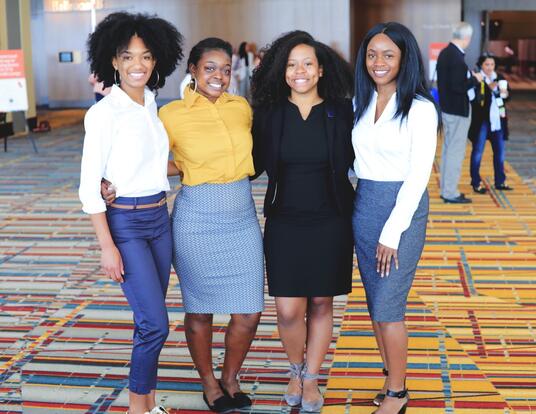Soros Foundation Recognizes GSAS “New Americans”
PhD students awarded prestigious fellowship
GSAS students Zubia Hasan and Laura Nicolae as well as incoming student Osaremen Okolo have been awarded a 2022 Paul & Daisy Soros Fellowship for New Americans, a merit-based graduate school program for 30 immigrants and children of immigrants.
Chosen from a pool of over 1,800 applicants, Hasan, Nicolae, and Okolo were selected for their potential to make significant contributions to the United States. They will each receive up to $90,000 to support their graduate studies.
Staff from the communications offices of GSAS and Harvard Business School (HBS) caught up recently with the “New Americans” to learn more about their path to the University, their research focus, and their reaction to being named a Soros Fellow.
What was your path to GSAS?
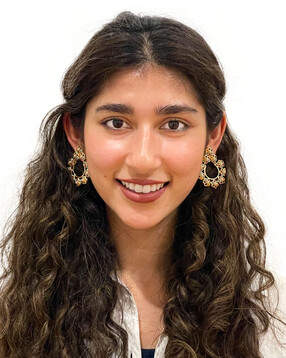
Zubia Hasan: Our family had applied for the green card process a decade ago hoping to come to America for better educational opportunities at a time when political unrest in our home community of Karachi, Pakistan was disrupting education very frequently. We obtained our permanent resident status in 2015 but it wasn’t until 2017 that I fully moved to the US and joined Johns Hopkins University. I loved physics and creative writing but ultimately decided to major in physics, although I continued writing on my own. I was interested in experimental condensed matter physics and it was important for me to be in a collaborative environment with a lot of representation by women since this is a traditionally male-dominated field—a factor that very naturally led me to Harvard which has more women faculty in this area than other places (although we have a long way to go still!).
Laura Nicolae: My parents are immigrants from Romania. I grew up in Topeka, Kansas, where almost all of my best friends were children of immigrants, too. I left Kansas after high school to go to Harvard College; I graduated in 2020 with the highest honors in applied math and economics. During college, I worked on several research projects with Harvard economics faculty, who inspired my interest in monetary policy and my desire to pursue a PhD in economics. After college, I worked for one year in economics research at Goldman Sachs in New York, where I researched and forecasted changes in the macroeconomy during the acute phases of the coronavirus pandemic, before coming back to Harvard to start my PhD in economics.
Osaremen Okolo: I was born in Boston, Massachusetts to a mother and father who journeyed across an ocean to conceive. My parents immigrated from Nigeria after struggling with a decade of unexplained fertility, and our story has always served as the guiding compass in my academic and professional purpose.
I graduated from Harvard College in 2017, concentrating in the history of science and African and African American Studies with a secondary concentration in global health and health policy. During my final year at the College, I pursued a 30,000-word independent research project titled “Blackened Fertility: The Lasting Discourse of African American Female Reproduction After the Civil Rights Movement.” In the thesis, I argued that historical narratives which imagined Black women to be hyper-sexual and hyper-fertile were perpetuated to serve various political agendas and maintain pervasive tentacles on Black reproductive health today.
The career path I ultimately selected was born from this scholarship, as I came to believe that policy is the most critical lever in establishing racial health equity. After five years working on federal health policy across our legislative and executive branches of government, I’m eager to pursue graduate studies that will allow me to grow beyond my own perspective and consider the decisions of leaders, experts, and other public health stakeholders through decades and centuries past.
What is your area of research and what are you currently working on?
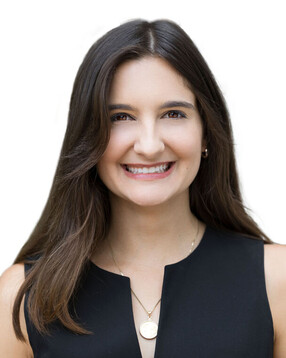
Hasan: At Mundy Lab, I synthesize and characterize thin films made via molecular beam epitaxy. What that means is that I use a big fancy oven to evaporate atoms of certain elements stored in the machine and these atoms are beamed onto a substrate which is basically just a lego block foundation that tells the atoms which structure to form! In this way sheets of atoms can be laid down in a very precise manner, building on the structure below it. This type of synthesis can give us very pure crystalline materials which are essential in realizing a lot of the fundamental properties inherent to them. The types of materials we study range from superconductors to topological semi-metals. These are extremely useful for energy-efficient applications such as MRIs, trains, particle accelerators, and even quantum computing.
Nicolae: My research focuses on how changes in the interest rates controlled by monetary policy transmit through the financial system to affect lending, inflation, and employment. In particular, I study how monetary policy and financial regulation can be improved to help stabilize the economy during recessions and boost economic growth while also preventing high inflation of the kind that we’ve seen in the US over the past year. I became obsessed with monetary policy in college after I read the research of several HBS finance professors, such as Sam Hanson and Adi Sunderam, and Harvard economics professor Jeremy Stein, all of whom are my mentors in the PhD program today.
Okolo: As a doctoral candidate and Presidential Scholar, I’m looking forward to rejoining the department I fell in love with during my undergraduate years because of its interdisciplinary mission. Continuing the work I started in my senior thesis, I plan to consider how our national policy decisions and political priorities over time have impacted Black reproductive health in the present. More broadly, l aim to study medicine, public health, and their interactions in historical, social, and cultural contexts while interconnecting contemporary health policy and political science—developing a body of scholarship to transform our understanding of racial health inequities, uncover a clearer path to resolving them, and set the course towards equity for our years ahead.
What was your reaction when you found out you were named a Soros fellow?
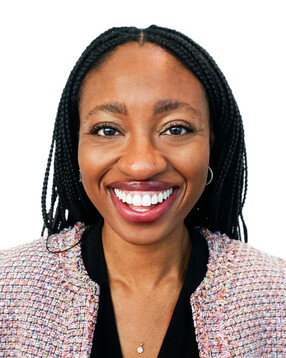
Hasan: I was absolutely overwhelmed to be a Soros fellow and feel extremely lucky and privileged to be a part of this years’ cohort—to join the company of so many amazing immigrants with inspiring stories feels unreal. I hope I am able to live up to what this award means to me—to recognize the privilege and sense of accountability that should always come with being an American. This award has financial benefits, helping cover my PhD stipend and tuition fees but a larger benefit is the connections with other fellows and the community that being a Soros fellow allows me to join.
Nicolae: One of my most deeply held beliefs is that immigrants make the US a much better place, so I very much admire the Paul and Daisy Soros Fellowship’s mission of supporting immigrants and the children of immigrants in pursuing advanced education. I know that I am only able to do so because of my parents’ support for my education from a very early age. I am confident that without my parents’ investment in my math education since childhood, I would not have been able to succeed as an applied math major at Harvard College. By recognizing new Americans, the Soros Fellowship recognizes the real source and reason for my academic successes
Okolo: I am incredibly grateful for the opportunity to join a fellowship that will allow me to stay grounded in my commitment to public service even during my work as a doctoral candidate.
My identity as a New American—a child of immigrants who chose to become American—is inextricable from the identity defined by my lived experience as a Black American. This dual identity drove my decision to pursue a career in public service to our still perfecting union, with a reverence for that union that has been instilled by my parents. As I recognize the sanctity and singularity of our founding, I strive, through my work, to challenge its long-held notions and create policy that drives us closer to its ideals: equity, self-determination, universal health, and reproductive justice. The Paul & Daisy Soros Fellowships for New Americans has created a unique community of scholars and professionals that are all forged and motivated by our experiences as children of immigrants and immigrants—we work each day to ensure that the journey was worth it.
Editor’s note: Laura Nicolae’s responses—along with some language used in the questions and introduction of this interview—were drawn from her interview with the communications office of Harvard Business School, where Nicolae does much of her research.
Photos courtesy of The Paul & Daisy Soros Fellowships for New Americans and Susan Young
Get the Latest Updates
Join Our Newsletter
Subscribe to Colloquy Podcast
Simplecast


